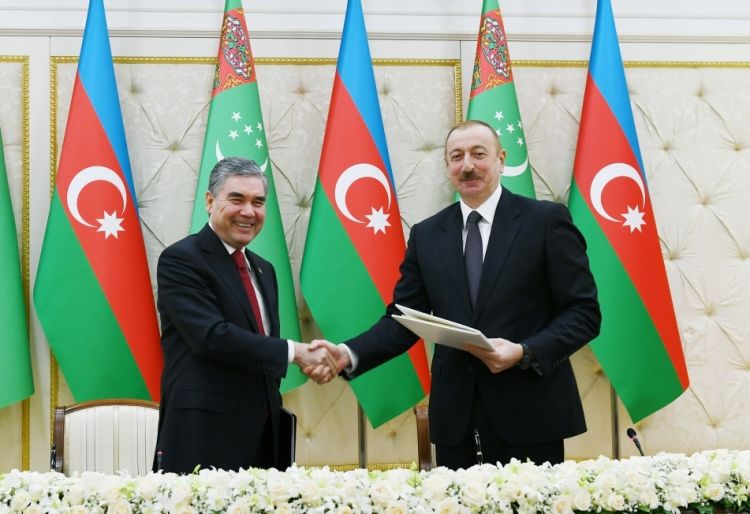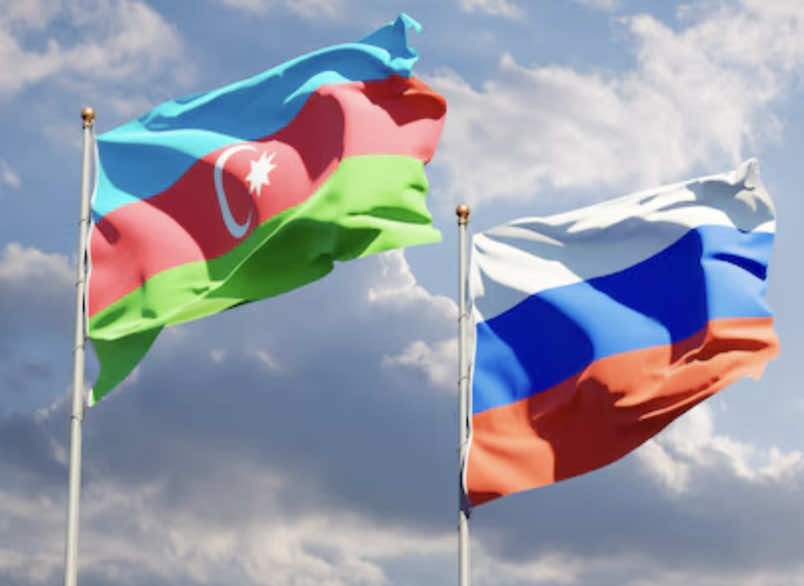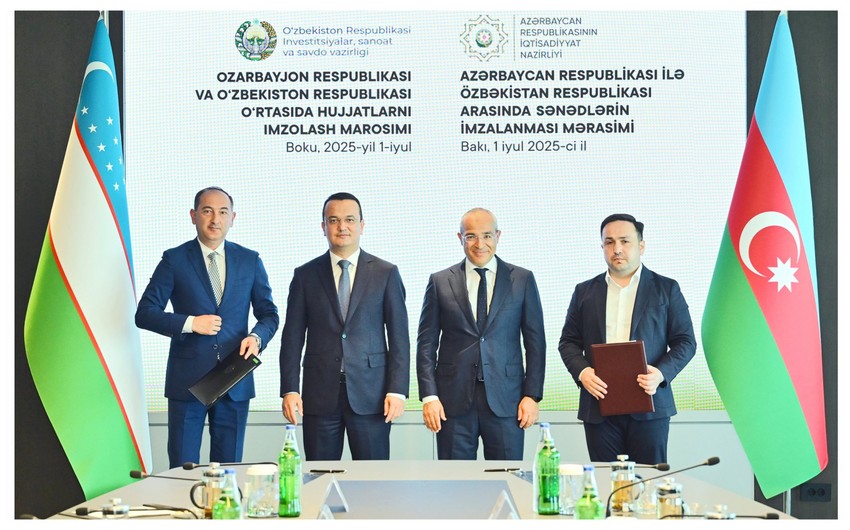On January 21, the governments of the Republic of Azerbaijan and the Republic of Turkmenistan signed the Memorandum of Understanding on the joint exploration and development of the Dostluq oil field in the Caspian Sea, which for many years was the subject of dispute and conflict between two countries. It is very significant historic moment for Azerbaijan and Turkmenistan that the leaders of both countries have eventually managed to arrange the settlement of the long-term dispute in the framework of the regional partnership.
Eurasia Diary conducted an interview with Orkhan Baghirov, expert of Center of Analysis of International Relations regarding the impacts of the Memorandum of Understanding on Azerbaijan-Turkmenistan relations.

Orkhan Bagirov is leading advisor on regional and international economic relations and transportation corridors.
- Mr Bagirov, from your opinion, what is a necessity of the joint agreement in terms of the development of the bilateral relations between Azerbaijan and Turkmenistan?
- As Azerbaijan and its partner countries recently launched TAP project which enables full use of Southern Gas Corridor, it increased the attractiveness of Azerbaijan as a regional energy hub. Along with oil pipelines Azerbaijan now could offer gas pipelines for regional countries to use as transit. The energy infrastructure of Azerbaijan created new opportunities for the Turkmenistan to export its energy resources to Europe and other countries. For many years Azerbaijan has proved itself as reliable partner and it has positively affected bilateral relations of Azerbaijan with regional countries. Therefore, it is advantageous historical moment for both Azerbaijan and Turkmenistan to develop bilateral relations and to work on the joint exploration and development of Dostluq oil field. Also, in the period of low economic growth because of the pandemics this oil field could bring substantial financial income to both Azerbaijan and Turkmenistan.
- According to the view of some experts, the joint agreement between Azerbaijan and Turkmenistan on the end of the long-term dispute over the oil field at the junction of the national borders of the Caspian Sea is next important step for the strengthening of Turkic Alliance. What do you think about that?
- I do not think that the joint agreement could be directly related to the strengthening of Turkic Alliance. This agreement mostly serves for the development of the bilateral relations between Azerbaijan and Turkmenistan as it is beneficial project for both sides. Azerbaijan has always supported the regional cooperation and actively participated in regional joint energy and transport projects. So, by signing the joint agreement with Turkmenistan, Azerbaijan seeks to positively contribute to the regional development and energy security.
- Do you see any opportunities for the establishment of the new trilateral format by Turkey, Azerbaijan and Turkmenistan in wake of that event?
- There are always opportunities for the establishment of different cooperation formats. Especially after the liberation of occupied territories new cooperation perspectives were created in the region. However, such format does not currently exist. If there is proposal for the establishment of such format and will serve the interests of Azerbaijan, I think Azerbaijan could join this format. It will depend on the advanatges that mentioned trilateral format could offer.
- What is the attitude of other littoral states, especially Russia and Iran to the solution of the long-term dispute between Azerbaijan and Turkmenistan over the oil field in the Caspian Sea?
- In my opinion all littoral countries including Russia and Iran support the regional cooperation and are against the disputes between the regional countries in energy sphere. History shows that they never were against and tried to interfere to the implementation of different energy projects in the region such as Baku-Tbilisi-Ceyhan and Southern Gas Corridor. Now they demonstrate same attitude to the joint agreement between Azerbaijan and Turkmenistan. As this joint agreement is not against the interests of other littoral states it will positively affect the energy security and diversification of energy supply in the region.
Interviewed by Yunis Abdullayev










